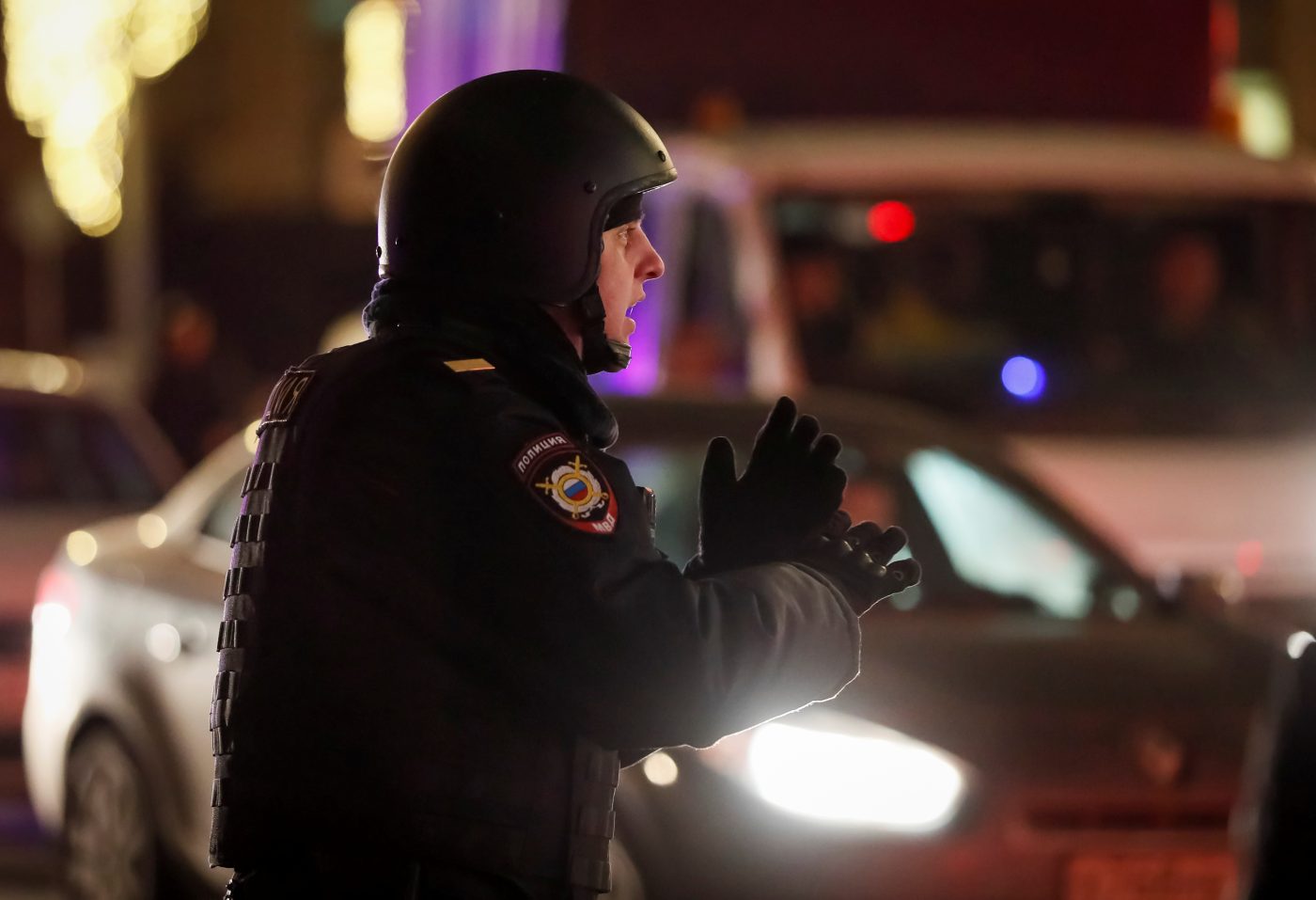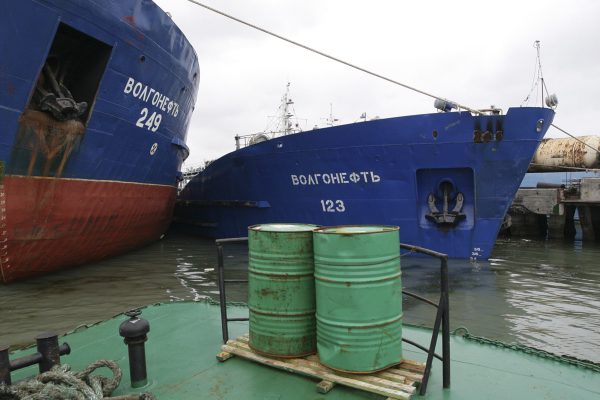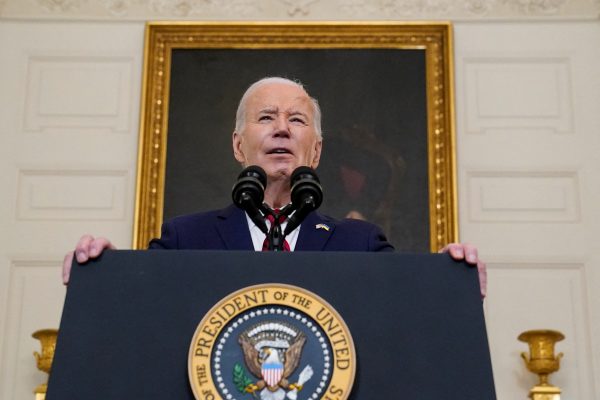When three officers of the FSB in Moscow were arrested on charges of accepting more than 5 billion rubles ($55.2m) in bribes, it hardly came as a huge surprise. The name of the directorate all three officers were part of is telling that this scandal is deemed to be repeated.
The three were members of the FSB’s Directorate M (which is designed to fight corruption in the Interior Ministry, Emergencies Ministry, and Ministry of Justice). They had been engaged in an ongoing investigation against the country’s largest electronics distributor, Merlion, and had decided to extort money from the company by promising to close their inquiry.
The case is the biggest scandal to affect the FSB since 2019, when three officers in the intelligence organization’s banking supervision unit, known as Department K, were jailed on charges of corruption and extortion after $199m in cash was found in their homes and those of their parents.
Now it’s the turn of the Directorate M.
The three FSB operatives are accused of acting together with a senior officer in the Investigative Committee, which oversees prosecutions. The accused is Sergei Romadanovsky, a member of the Russian-Soviet security elite.
His father was Konstantin Romadanovsky, a high-ranking officer in the KGB and then the FSB who was close to Putin. His last position had been as minister of migration. At some point in his career, Romadanovsky Senior also supervised anti-corruption efforts in the Interior Ministry and the FSB.
So, are these just random events or is there a pattern? There is indeed a pattern.
These are features of the Putin regime that repeatedly recur. And indeed they are almost unavoidable since they originate in the Soviet governing culture that still determines Russia’s governance.
Lenin’s party dreamed of the revolution in Germany, not in backward Russia. In the Bolsheviks’ grand global plan, Russia was given the role of a springboard of the world revolution.
The working language of the Comintern — the global Communist International movement, headquartered in Moscow — was German, not Russian. As for the Russians, Bolsheviks never held them in high esteem: to Lenin’s crowd, uneducated Russian peasants could never compete with the advanced German proletariat. And that meant the Russians couldn’t be trusted with anything.
Bolshevik disdain and distrust of the Russian people never disappeared. Soviet officials always held the people they governed with some contempt.
They didn’t believe in the people’s goodwill: they strongly believed that any Russian citizen at any moment might spontaneously go mad or get drunk, crush the equipment in the workplace, or bumble into contact with a dangerous foreigner and expose state secrets. The people were unreliable and, thus, needed to be kept under tight control.
But how to make this control efficient? Bolsheviks quickly discovered that the best method was fear, a system of never-ending intimidation whose armory included everything from widespread spying on the population to mass killings. In the following decades the method — control via intimidation — remained the same; only the tools varied, from mass repression to the more sophisticated approaches adopted by the KGB.
KGB methods were based on the assumption that the frightened Russian people needed only to be reminded what could happen to ordinary citizens under Soviet rule (Stalin’s purges came in handy as an example) to make him or her follow the rules. For that, the omnipresence of KGB agents as society’s controllers was the best option.
Of course, that approach never properly worked – the Soviet Union was famous for widespread corruption, when stealing from the enterprise one worked for was not even considered a crime by ordinary citizens; Thus the popular 1960s-1980s proverb, “You’re the boss at your employer, not a guest, so feel free to steal every hobnail.”
Putin wholeheartedly embraced the Soviet approach when he came to power. From day one, he strongly believed that an omnipresent FSB would give him the control he wanted.
Soviet-era paranoia about Western spies plotting to wreck Soviet factories came in useful. When Putin was director of the FSB, he massively expanded the departments in assigned to control various areas of the economy and society and — supposedly — to catch the traitors working to destroy Russia.
They were given fancy names like the Directorate of Counterintelligence Support to Industrial Enterprises (Directorate P); the Directorate of Counterintelligence Support to Transportation (Directorate T); the Directorate of Counterintelligence Support to the Financial System (Directorate K); the Directorate of Counterintelligence Support to the Interior Ministry, the Emergencies Ministry, and the Ministry of Justice (Directorate M).
In reality, the work of these FSB departments was never about catching foreign spies, but about control and supervision, to be Putin’s eyes and ears at important enterprises or ministries. The officers of the above-mentioned directorates were assigned to organizations all over the country — from the ministry in Moscow to companies in the Far East.
This of course caused its own problems. While the population was quiescent, the system had created a class of men (they were almost all male) with near-unlimited power who were essentially tasked to collect compromising material on the entity they were assigned to supervise.
It was no surprise that this disastrous system became an incubator for staggering levels of abuse; the most corrupt FSB officers came from the above-named directorates.
Putin’s system of control based on an omnipresent FSB has completely failed. Too much of his new nobility is rotten with graft. Supposedly steely-eyed state operatives have been distracted by unchecked power and the opportunities for self-enrichment.
Much like the Bourbons of pre-revolutionary France, the regime has the strength to carry on but lacks the wisdom to learn from its mistakes.
Andrei Soldatov and Irina Borogan are Nonresident Senior Fellows with the Center for European Policy Analysis (CEPA.) They are Russian investigative journalists, and co-founders of Agentura.ru, a watchdog of Russian secret service activities.
Europe’s Edge is CEPA’s online journal covering critical topics on the foreign policy docket across Europe and North America. All opinions are those of the author and do not necessarily represent the position or views of the institutions they represent or the Center for European Policy Analysis.





